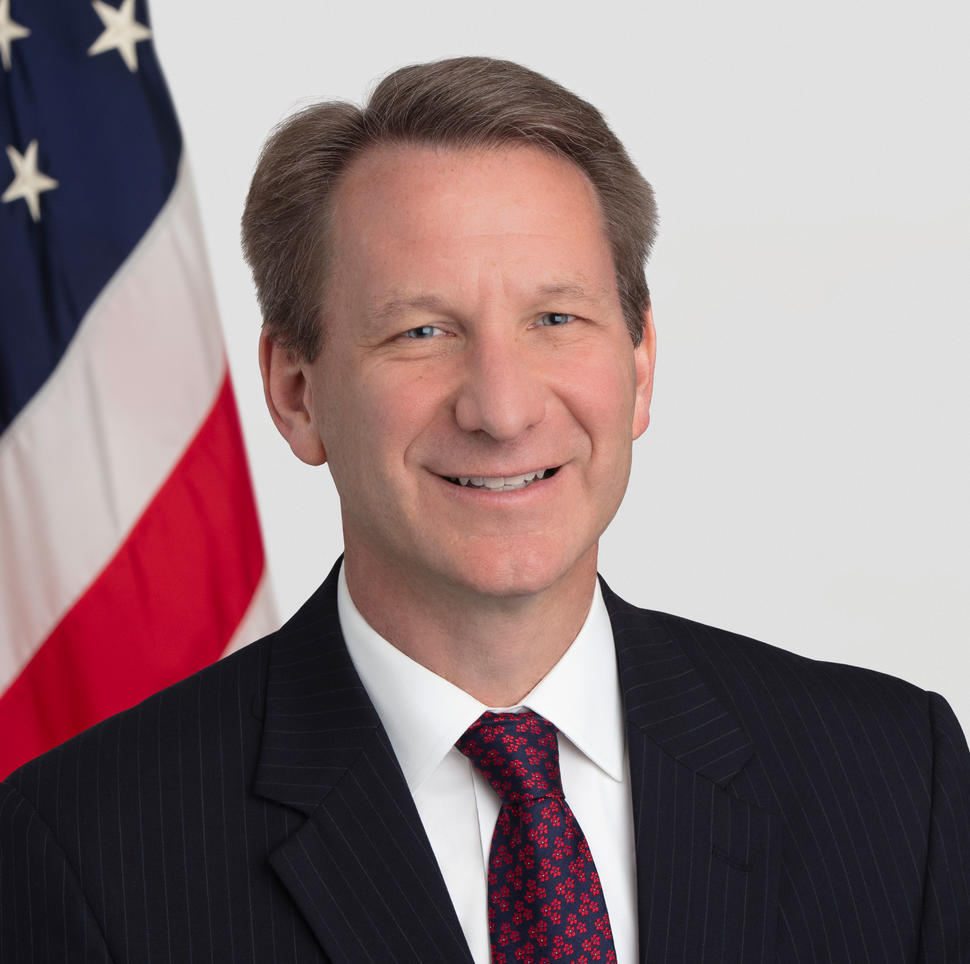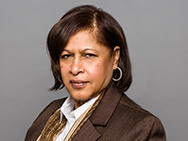Saying YES: Inspiring a Diverse Generation of Cancer Scientists
, by Norman E. Sharpless and Sanya Springfield
When Dominique Pablito was in high school, she was earning straight As, participating in a research internship at a hospital, and taking college courses in the evening—all while sleeping in a car at night because her family couldn’t afford housing.
Since that time, Dominique, a member of the Zuni/Navajo tribe, has completed internships at Harvard, and is now on her way to earning her doctorate in the Molecular Biology, Cell Biology, and Biochemistry Department at Brown University.
Dominique’s remarkable story is a tribute to her hard work and dedication. But she also attributes her success, in part, to her participation in a program at the Huntsman Cancer Institute at the University of Utah, called PathMaker, that gave her the opportunity to work in a research lab and learn what it takes to have a career in cancer research.
“I can confidently say I would not be where I am today if it weren’t for the PathMaker Program,” she said. “It was what opened the door to the research world and provided me with the support I needed, even after completing the program.”
PathMaker is supported by a grant to Huntsman as part of an NCI initiative called the Youth Enjoy Science (YES) Research Education Program. The YES program provides grants to institutions to develop strategies to encourage young students from populations that are underrepresented in science careers (racial/ethnic minorities, people of low socioeconomic status, or individuals with disabilities) to become interested and engaged in biomedical research.
YES was developed by NCI’s Center to Reduce Cancer Health Disparities (CRCHD), which has supported and championed training and education initiatives for more than 20 years to increase the diversity of the biomedical workforce.
YES focuses on more than just the students; it takes a holistic approach, strongly encouraging the students’ families, teachers, and community members to get involved in these educational activities, with the aim of supporting young people from diverse backgrounds as they pursue studies in biomedical science and encouraging them to envision a career in cancer research as a viable and achievable future.
Building a Diverse Workforce
At NCI, we have a mandate to recruit, train, and support scientists. Cancer will, in all likelihood, remain a vexing scientific and public health challenge for many years to come, and it is NCI’s responsibility to ensure a dedicated and talented workforce to meet that challenge for the long term.
It’s our firm belief that we can’t make progress without attracting talent, ideas, creativity, and perspectives from people of all genders, races/ethnicities, physical abilities, geographic locations, and socioeconomic statuses. Underrepresented population groups are an untapped reservoir of research talent, making up only approximately 10% of the scientific research community in the United States. It’s clear that we need to continue to prioritize increasing scientific workforce diversity to reflect the demographic makeup of our country.
Although the numbers of Black/African-American, Hispanic/Latino, and American-Indian/Alaska Native medical school graduates have increased over the past 2 decades, they are still underrepresented relative to their corresponding proportions of the US population. With most of the population growth in the United States in the next 30 years expected to come from racial/ethnic minority groups, it is more important than ever to improve the diversity of the cancer research and caregiver workforce.
Getting an Early Start in Science Education
Bringing middle school, high school, and undergraduate students into research labs to participate in creative and cutting-edge research activities gives them opportunities to learn practical research and career skills. The experience of working together with other researchers in the lab and seeing first-hand what a career in research might be like can inspire their future education and career choices.
That was the impetus for the launch of the YES program. In the first 2 years of the program, more than 400 students from diverse backgrounds participated in YES. Among these students at eight universities, 29% were Black/African-American, 23% were Hispanic/Latino, and 26% were American Indian. Now in its 4th year, YES is gathering momentum and has 16 active programs across the nation.
YES is the newest arm of the Continuing Umbrella of Research Experiences (CURE) program, one of CRCHD’s flagship initiatives, which was designed to work toward eliminating inequalities in the biomedical research workforce. CURE offers unique research training, mentorship, professional support, and other career development opportunities for students and scientists from underrepresented backgrounds throughout their academic and research career, especially during pivotal points on their training and career paths.
The CURE program focuses on the problem of underrepresented students and scientists too often dropping out of the science career pipeline—or never entering the pipeline—because they do not have adequate exposure to or opportunities for engagement in cancer research, or lack support to advance their careers.
However, for some students, high school may even be too late to engage their interest in science careers. Since younger students are still very much entrenched in their home environment, the impact of early science education strategies can also positively affect their families’ and communities’ influence on young students’ career and life trajectories. An early introduction to science is particularly critical among underrepresented students.
YES Program at the Huntsman Cancer Institute
The PathMaker program, which builds upon a previous NCI P30 CURE supplement, is open to high school seniors and undergraduates from racial/ethnic minorities and economically disadvantaged, rural, and frontier areas across Utah and the West who are interested in research and medicine.
During Dominique’s 12-week summer internship with the PathMaker program, she worked 30 hours per week in a lab at Huntsman investigating DNA damage and repair in cancer cells. She also received one-on-one mentoring and training from the lab’s principal investigator, Srividya Bhaskara, Ph.D. She credits the PathMaker program for influencing her decision to major in chemistry. After completing the program, Dominique was hired to work in the Bhaskara lab.
“My time in the PathMaker program taught me how to apply for research grants, develop and maintain a professional network, craft research posters, and so much more,” she said. The program also reinforced the importance of perseverance.
“I’d begun to think that science wasn’t for me,” she said, “until I understood that failure is a part of research. I failed and made mistakes in the lab, but I never gave up. Through failure and continuous struggle, I learned I do indeed have what it takes to be a researcher.”
Her passion helped her attain several research awards and grants, including a National Institutes of Health Diversity Supplement Grant. After Dominique completes her doctoral training, she plans to pursue an M.D., as well as a doctorate in cancer biology. Her goal is to eventually return to her reservation to practice medicine, integrating indigenous culture and language to improve the care of elders.
Dominique dreams of starting a lab on the Zuni Pueblo to help pave the way for future generations of indigenous scholars by exposing them to research and sparking an interest in STEM at a young age. “I’ve made it a personal goal of mine to mentor Native American youth in their journey with higher education,” she said.
This is just the kind of outcome that was envisioned when the YES program was created.
Reducing Health Disparities with a Diverse Workforce
The inequities in cancer care and outcomes among medically underserved communities are a significant form of inequality and injustice in this country. Increasing diversity in the cancer workforce can assist in creating an environment for advancing cancer health equity.
We have learned that people from minority populations are more likely to see a doctor who is of the same race/ethnicity or socioeconomic background, because they have a greater level of trust in people who share similar backgrounds.
We have also seen that when a doctor is from the same cultural community and speaks the language that the patient understands, the patient–physician relationship is stronger, resulting in greater patient adherence and satisfaction with care and, ultimately, better health outcomes.
Looking to the Future
Dominique’s story is one of many that illustrate the effectiveness of the YES program. Each institution’s YES program is different, with some emphasizing particular science tracks, such as bioinformatics, and others supplementing lab and research time with lectures, activities like journal clubs, and career development workshops.
Although early findings are positive, NCI is also examining the long-term outcomes of the YES program to more specifically determine its effectiveness in helping students from underrepresented populations pursue careers in cancer research, diversifying the medical and research workforce, and reducing cancer health disparities.
We are encouraged and excited by the success of the YES program thus far. More importantly, we are inspired by the talent, enthusiasm, and determination demonstrated by YES participants, many of whom have faced serious hardship throughout their lives. We look forward to welcoming Dominique and others like her into a cancer research workforce that is more diverse and more reflective of the communities it serves.


